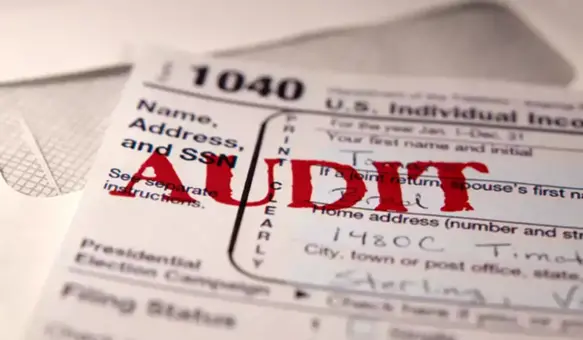Cryptocurrency Tax Reporting for American Expats 101

Cryptocurrency transactions have become very popular nowadays and every American citizens, including expats, have to file a US tax return every year, should know how the IRS is treating each transaction like buying, investing, and trading of Cryptocurrencies.
If you've invested in Bitcoin or another form of cryptocurrency, understand how the IRS taxes these types of investments and what constitutes a taxable event. In 2021, in particular, cryptos have frequently featured in the news due to dramatic value changes. Let us see the cryptocurrencies and their tax implications below.
What is Virtual Currency?
Virtual currency is a digital representation of value, other than a representation of the U.S. dollar or a foreign currency (“real currency”), that functions as a unit of account, a store of value, and a medium of exchange. Some virtual currencies are convertible, which means that they have an equivalent value to real currency or act as a substitute for real currency.
The IRS uses the term “virtual currency” to describe the various types of convertible virtual currency that are used as a medium of exchange, such as digital currency and cryptocurrency. Regardless of the label applied, if a particular asset has the characteristics of virtual currency, it will be treated as virtual currency for Federal income tax purposes.
What is Cryptocurrency?
Cryptocurrency is a type of virtual currency and that can be exchanged for services or goods, although many people buy them simply as an investment. You may have heard of Bitcoin or Ethereum as two of the more popular cryptocurrencies, but there are thousands of different forms of cryptocurrency worldwide.
How Cryptocurrency Transactions are Taxed?
Transactions from cryptocurrency are similar to money transfers or credit card payments. However, instead of moving the funds through a banking system, money moves through a specific cryptocurrency network, thus removing banks as the middleman.
Widely, cryptocurrencies are used mostly for three purposes Investment, exchange, and receiving or sending money. Though these are digital currencies, In the eyes of the IRS, cryptocurrencies are not recognized as currencies but as property.
So, for federal tax purposes, the cryptocurrency will be treated as property and all general tax principles applicable to property transactions will also apply to transactions using cryptocurrency.
What if you Sell Cryptocurrency?
If you sell crypto after holding it for more than a year, you’ll have a capital gain and will be taxed at a lower rate. Yet if you held your crypto for one year or less, your capital gain is considered short-term, and you’ll need to use the federal US tax rate based on your income bracket.
If you’ve suffered capital losses on your cryptocurrency, you can offset it as taxable capital gains on other investments, which include up to $3,000 of ordinary income. If you have unused capital losses, they will be carried forward to future tax filings.
What if you Trade or Convert Cryptocurrency?
If you trade your cryptocurrency, then you need to report the capital gains or losses you got from crypto for another type you traded. (Example - Trading Bitcoin for Ethereum)
If you convert your cryptocurrency into non-crypto currency, then also you need to report your capital gains or losses on the day of conversion. (Example - Converting the cryptocurrency into USD or Euro).
What if you Only Purchase Cryptocurrency and No Other Transactions Made during the year?
Beginning in the tax year 2020, the IRS has made a change to From 1040 and began including the question: "At any time during 2020, did you receive, sell, send, exchange or otherwise acquire any financial interest in any virtual currency?"
You need to check "Yes," to the question if you had any transactions of virtual currencies. However, If your only transactions involving virtual currency during 2021 were purchases of virtual currency with real currency, then there are no tax implications. Even you are NOT required to mark “Yes” to the above question in your 2021 Form 1040 as it involves only the acquisition of virtual currencies.
What if you Receive Cryptocurrency as a Gift from someone?
If you receive cryptocurrency as a gift from someone, you may be having two reporting requirements as follows.
- Capital gains and losses are to be recognized and reported when you spend the crypto gift on something.
- Form 3520 should be prepared and submitted reporting the Crypto gift if it is received from Foreign persons meeting the conditions.
Our experts in TFX will guide you correctly on this when you come across such a situation.
What if you Gift Cryptocurrency to someone?
If you gift the cryptocurrency to someone, totaling over $15,000, you will need to report the transactions on Form 709. Please note, you only need to file Form 709 if your total gifted value exceeds $15,000 to someone, either once or over multiple transactions throughout the year.
Our experts in TFX will guide you correctly on this when you come across such a situation.
Can I exclude Cryptocurrency from Tax?
Generally, there are no exclusions available for cryptocurrency, and income should be recognized and taxed when you trade, exchange, or sell.
It is possible to exclude the cryptocurrency under Foreign earned income exclusions (FEIE) if it is received as an Employment income or business income.
However, after receiving crypto does any increase or decrease in value mean a capital gain or loss, and the capital gains income can not be excluded from US taxation when you trade, exchange, or sell.
(upd.) Understanding Digital Asset Reporting and Tax Obligations
For the tax year 2022, taxpayers who file Forms 1040 and 1040-SR are required to indicate if they have received any digital assets as payment for goods, services or rewards or if they have sold or transferred any digital asset that was held as a capital asset.
Digital asset transactions could include:
- selling digital assets,
- receiving digital assets as payment,
- receiving new digital assets as a result of mining, hard fork, or staking activities.
Taxpayers must report all income related to their digital asset transactions if they have checked "yes". They should use Form 8949 to calculate their capital gain or loss and report it on Schedule D. In the case of gifts, Form 709 must be filed.
Individuals who have received digital assets as compensation for services or have disposed of digital assets for sale to customers in a trade or business must report the income in the same way they report other income of the same type, such as reporting W-2 wages on Form 1040 or 1040-SR, line 1a, or inventory or services on Schedule C. For more information, taxpayers can refer to the Instructions for Form 1040 and 1040-SR and the IRS Digital Assets page.
Is Cryptocurrency reportable in FBAR?
An FBAR is the Foreign Bank Account Report – a filing requirement for US persons who have an aggregate total of over $10,000 in foreign banks and investment accounts at any time during a year.
As per the article by The National Law Review, FinCEN is seeking to establish the FBAR requirement for Cryptocurrency accounts from 2021 FBAR filing.
Is Cryptocurrency reportable in Form 8938 (FATCA)?
Form 8938 is related to FATCA. FATCA is the Foreign Account Tax Compliance Act which is an act designed to facilitate reciprocal financial reporting between the United States and more than 110 different countries, with the goal of promoting financial transparency and reducing offshore evasion, fraud, money laundering, etc.
The IRS has yet to issue set regulations for FATCA Cryptocurrency reporting on Form 8938. Under most circumstances, if you have your cryptocurrency on a Financial Exchange, in a Crypto Bank Account, or you invested in a Crypto Managed Fund, you may have a Form 8938 filing requirement.
(upd.) IRS’s Guidance on Taxation of Non-Fungible Tokens (NFTs)
The IRS has issued guidelines on how to tax non-fungible tokens (NFTs) and is seeking public comments on the issue.
NFTs are digital assets representing unique items like art, music, or sports memorabilia. The guidelines provide clarity on applying existing tax laws, including cost basis determination and reporting gains and losses.
The IRS also seeks feedback on NFT valuation and information reporting requirements. Taxpayers are advised to review the guidelines and consult tax advisors to avoid penalties or criminal prosecution.
The IRS aims to keep up with the evolving nature of NFTs and provide clarity to taxpayers and tax professionals.
Overall, the IRS's guidance on the taxation of NFTs is intended to provide much-needed clarity to taxpayers and tax professionals who are increasingly engaging in NFT transactions. By soliciting public comments, the agency is also taking a proactive approach to understanding the evolving nature of NFTs and their potential tax implications.



